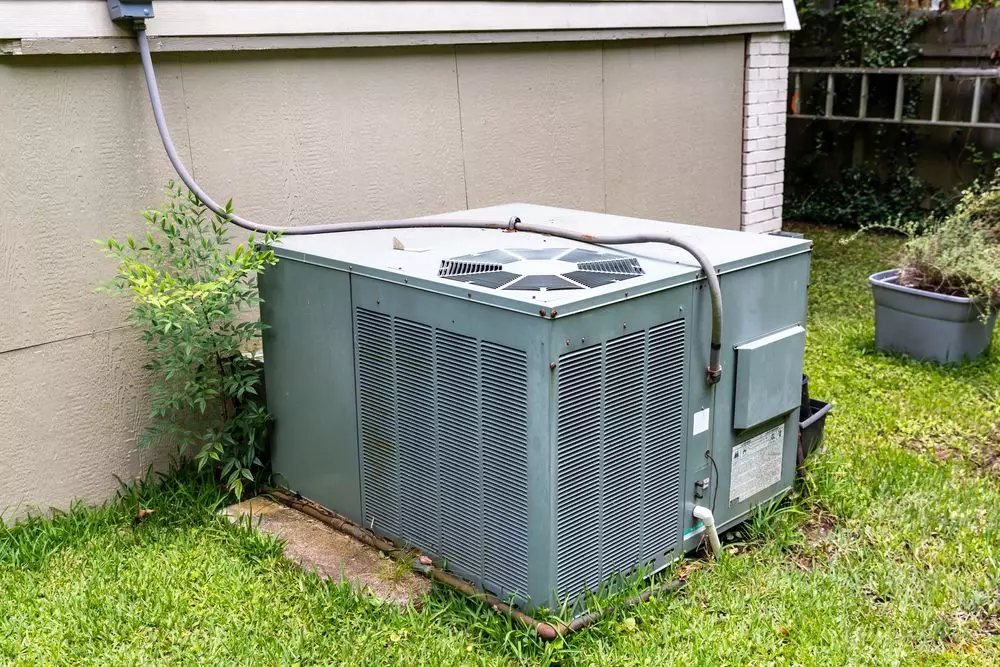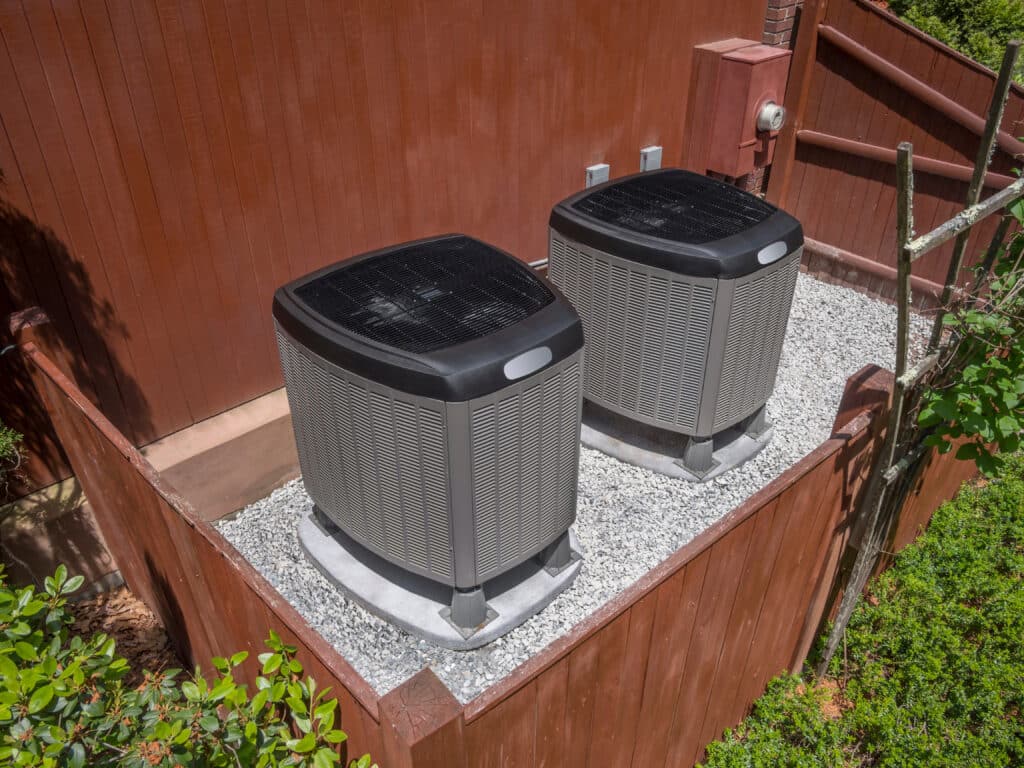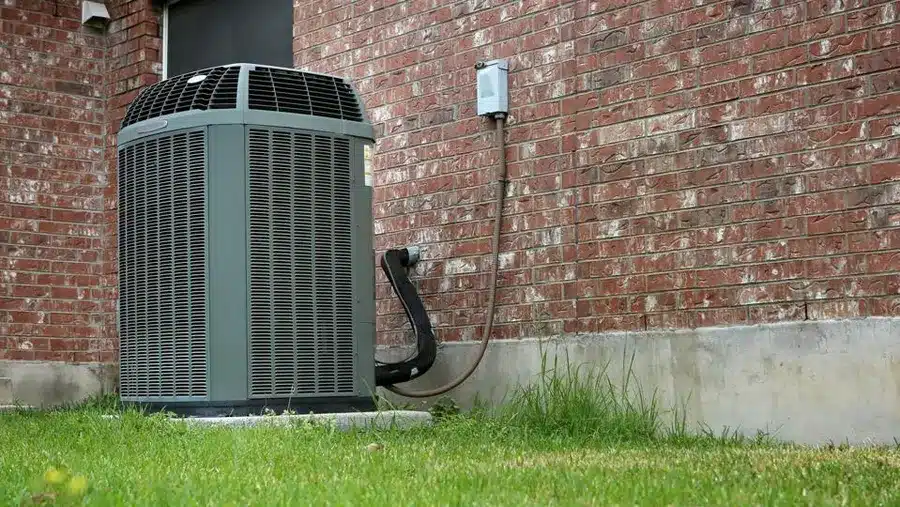Your HVAC (Heating, Ventilation, and Air Conditioning) system is the unsung hero of your household, silently working to maintain a comfortable environment regardless of the weather outside. However, like any complex machinery, it is prone to malfunctions, and one of the most common and concerning issues is overheating. When your HVAC unit overheats, it’s not just a nuisance; it can lead to costly repairs or even complete system failure. In this detailed guide, we’ll explore the myriad reasons why your HVAC system might be overheating and delve into practical solutions to address these issues effectively.
Dirty Air Filters: A Hidden Menace

Air filters are the unsung heroes of your HVAC system, quietly working to ensure that the air circulating in your home is clean and free of dust, allergens, and other impurities. However, over time, these filters can become clogged with debris, inhibiting airflow and causing your HVAC system to work overtime to maintain the desired temperature. The strain placed on the system due to dirty air filters can result in overheating, leading to decreased efficiency and potentially costly repairs down the line. Regularly replacing or cleaning your air filters is essential to prevent this issue and keep your HVAC system running smoothly.
Refrigerant Leaks: The Silent Saboteur
Refrigerant plays a crucial role in the cooling process of your HVAC system, absorbing heat from the indoor air and releasing it outside. However, if there is a leak in the refrigerant line, it can disrupt this delicate balance, causing the system to struggle to cool effectively. As a result, the pressure and temperature within the HVAC unit can rise, leading to overheating. Detecting refrigerant leaks can be challenging since the refrigerant is typically colorless and odorless. However, if you notice a sudden decrease in cooling efficiency or ice buildup on the refrigerant lines, it may indicate a leak. In such cases, it’s essential to contact a professional HVAC technician to locate and repair the leak promptly.
Blocked Condenser Unit: Nature’s Obstruction
The condenser unit of your HVAC system plays a crucial role in dissipating heat from the refrigerant, allowing it to cool and circulate effectively. However, if the condenser unit becomes blocked or obstructed, it can impede airflow and cause the system to overheat. Common culprits include leaves, debris, and even overgrown vegetation surrounding the unit. Regularly inspecting and clearing any obstructions around the condenser unit can help prevent overheating and ensure optimal performance of your HVAC system.
Malfunctioning Thermostat: The Temperature Tyrant

The thermostat serves as the control center of your HVAC system, regulating the temperature and ensuring your home stays comfortable year-round. However, if the thermostat malfunctions or is not calibrated correctly, it can cause your HVAC system to run longer than necessary, leading to overheating. Common issues include inaccurate temperature readings, faulty sensors, or programming errors. If you suspect that your thermostat is the culprit behind your HVAC overheating woes, it’s essential to troubleshoot the device or consult a professional technician to diagnose and address the issue effectively.
Electrical Problems: Wiring Woes
Electrical problems are another common cause of HVAC overheating. Faulty wiring, loose connections, or overloaded circuits can increase the risk of electrical fires and damage to your HVAC system. If you notice unusual smells, strange noises, or frequent tripping of circuit breakers, it may indicate an electrical issue that requires immediate attention. Never attempt to repair electrical problems yourself, as it can be dangerous and may void your system’s warranty. Instead, contact a licensed electrician or HVAC technician to inspect and repair any electrical issues promptly.
Fan Motor Failure: A Cooling Catastrophe
The fan motor plays a crucial role in facilitating airflow within your HVAC system, ensuring proper ventilation and heat exchange. However, if the fan motor fails or malfunctions, it can disrupt the cooling process and lead to overheating. Common causes of fan motor failure include worn bearings, damaged blades, or electrical issues. If you notice a lack of airflow or unusual noises coming from your HVAC unit, it may indicate a problem with the fan motor that requires professional attention.
Dirty Evaporator Coils: Frosty Frustration
The evaporator coils are responsible for absorbing heat from the indoor air, allowing the refrigerant to cool effectively. However, if the coils become dirty or covered in debris, it can inhibit heat transfer and cause the system to overheat. Additionally, if the evaporator coils freeze over due to insufficient airflow or low refrigerant levels, it can further exacerbate the issue. Regularly cleaning and maintaining your evaporator coils is essential to prevent overheating and ensure optimal performance of your HVAC system.
Lack of Maintenance: Neglect’s Consequences

Perhaps the most significant contributor to HVAC overheating is a lack of regular maintenance. Like any mechanical system, your HVAC unit requires routine inspections, cleaning, and servicing to ensure proper functioning and prevent potential issues. Failure to perform regular maintenance can lead to a buildup of dirt and debris, worn-out components, and decreased efficiency, ultimately resulting in overheating and costly repairs. Investing in a comprehensive maintenance plan with a reputable HVAC service provider can help extend the lifespan of your HVAC system and minimize the risk of overheating and breakdowns.
Conclusion
In conclusion, HVAC overheating is a common and concerning issue that can have serious consequences for your home comfort and budget. By understanding the various factors that can contribute to overheating and taking proactive measures to address these issues, you can ensure that your HVAC system operates efficiently and effectively for years to come. Remember to schedule regular maintenance with a qualified HVAC technician, promptly address any issues or malfunctions, and prioritize proper airflow and ventilation throughout your home. With proper care and attention, you can keep your HVAC system running smoothly and enjoy uninterrupted comfort in every season.






GIPHY App Key not set. Please check settings